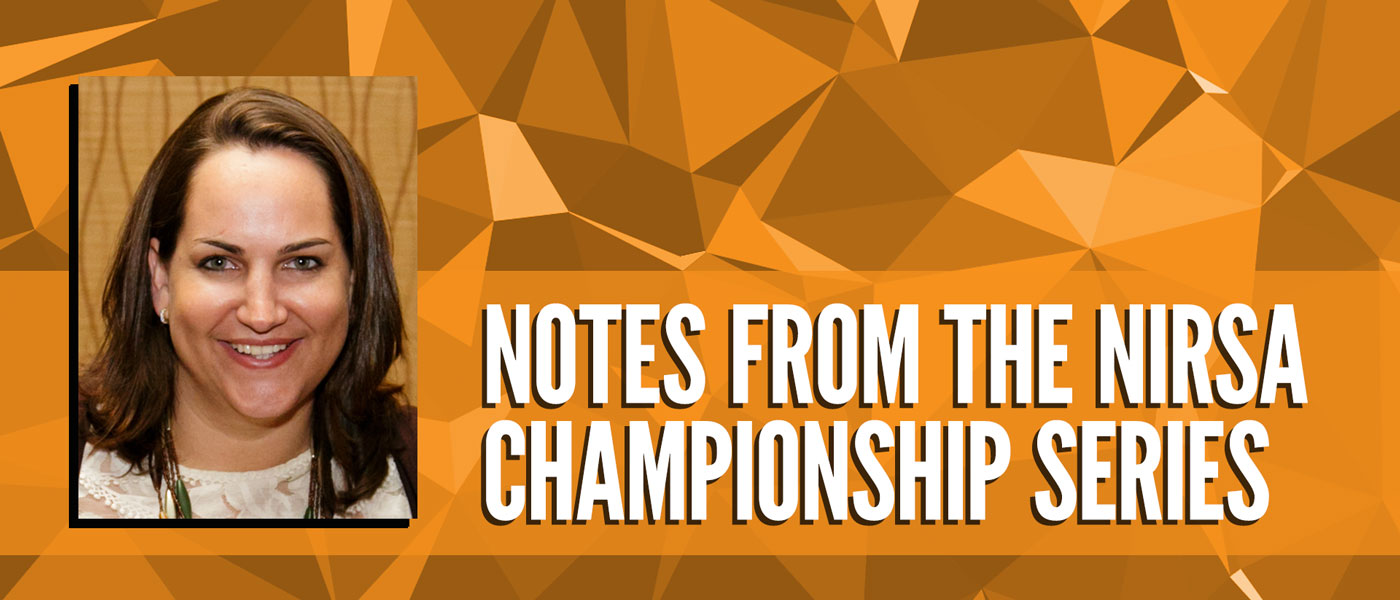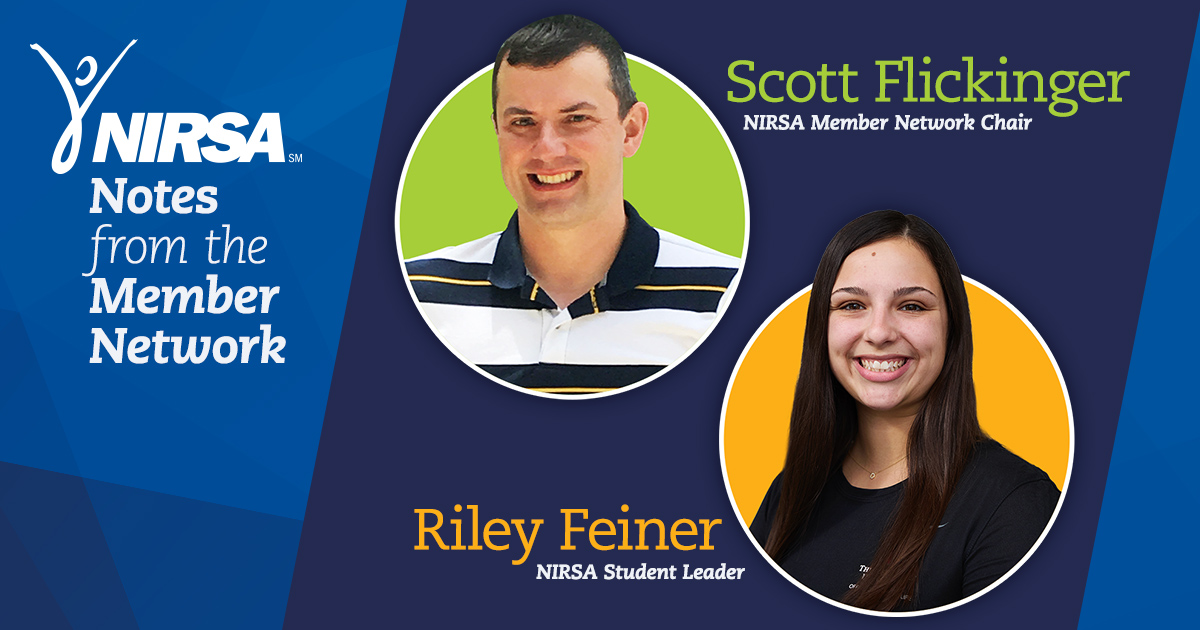By Stephanie McAlpine, 2014-2015 NIRSA Championship Series Committee Chair
Approximately two years ago at the NIRSA Region IV Conference, I attended a presentation by colleagues Andy Lemons—Director of Campus Recreation at St. Edwards University—and current NIRSA President Laurie Braden. The presentation focused on the LGBTQ community’s participation in campus recreation programs and included an activity where each participant was given a traditionally-minority role—many of which were paired with negative word associations and stereotypes. This activity led many attendees, myself included, to think what it might be like to lose the privileges many of us so often take for granted and have to suddenly fight for our ability to participate.
This role-playing activity really challenged me and caused me to reflect on feelings of isolation, humiliation, and exclusion. Afterwards, I began to explore programmatic and policy changes at UT Arlington primarily concerning our LGBTQ community. The presentation as a whole also caused me to question the tenets of the NIRSA Championship Series, which I believe eventually contributed to our Association’s commitment to establishing a transgender athlete participation policy.
The concept seemed simple enough, but the task of creating a possible model for campuses across North America was both challenging and complex. To tackle researching and drafting this policy, NIRSA appointed the Transgender Athlete Participation Policy Work Team, which includes representatives from NIRSA’s Strategic Values Commission for Equity, Diversity, and Inclusion, the 2013–2014 NIRSA Championship Series Standards of Competition Chair, a former NIRSA Championship Series Committee Chair, and staff from NIRSA Headquarters.
After many months of intensive investigation, debate, feedback, and review, a new policy has been set to launch with our Spring events in 2015. The policy—paired with proper education and training—will break down barriers for our transgender athletes. I believe the result not only sets a standard for campus recreation programs nationwide, but also other sport governing bodies and even other higher education associations.
Inclusive thinking is at the forefront of our Association, and I have actually begun to see the world through a new, even more inclusive lens as I prepare for time away from the office to celebrate my culture and family traditions. I have a busy schedule packed with holiday baking, online shopping—malls are out of the question with a toddler—Christmas parties, and of course lots of carols and lights. But I’ve found myself wondering how the millions of Americans who do not celebrate Christmas feel at this time of year.
Do they have feelings of isolation as I did during that role-playing activity? Are there ways that I can be more inclusive? I encourage you to not only review the new transgender policy, but to also have healthy discussions with colleagues about how we can be more aware and understanding of the diversity that is all around us.
Happy Holidays and have a healthy New Year everyone!





